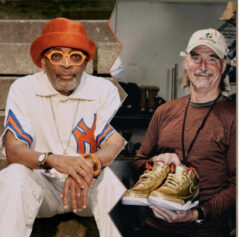Crooklyn was a gift that we didn’t realize we needed at the time.
Spike Lee‘s Crooklyn turns 25 today.
Crooklyn the 1994 Spike Lee offering shot from a black perspective in 1970s Bed-Stuy was significant because black family life was rarely shown in a sincere manner free of troupe-ish imagery and stilted dialogue.
It starts off with Troy, played by Zelda Harris, acting as one part protagonist and one part narrator, during the summer of 1973.
The film is filled with life lessons from the perspective of a little black girl, another very unique thing about Crooklyn. She’s the youngest of five, with four brothers, a father, played by Del Roy Lindo who is a musician, and a strict mother played by Alfre Woodard. Crooklyn and Malcolm X are the only two Spike Lee films to earn a PG 13 rating to date.
The characters that populate the movie are familiar, even in their passing. A war veteran, glue sniffers, and an aspiring musician. Children wanting only to be children only to have life remind them of a legacy of toil that was set out for them long before they were born.
Like many of Lee’s offerings, a tragedy plays the catalyst for noticeable, believable change within the protagonist. With Troy’s emergence as the primary caregiver to her brothers after their mother gets sick, millions of African-American women were touched in their hearts because of the familiarity with death and cancer themselves.
This movie was a cultural gift from Spike Lee and his sister Joi, to black people. We didn’t realize we needed it at the time. Most of us were not the Huxtables but were more like the Carmichaels instead.
For the realness, and the culture, and the far more realistic interpretations of black family struggles in film that followed it, Crooklyn is still relevant today.



